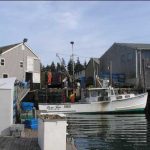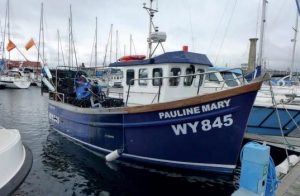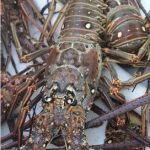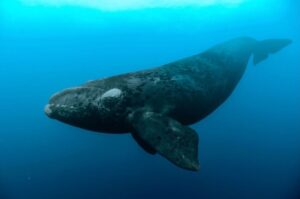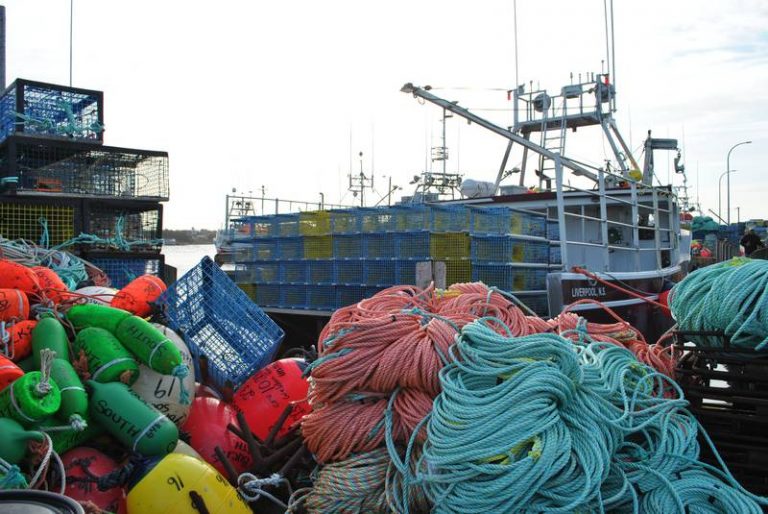Tag Archives: fishing rights
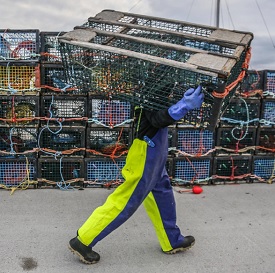
Fishermen clash over fishing rights across the Maritimes, tensions are running high
Canada’s highest court has refused to hear a Mi’kmaw fisherman’s appeal to have legal costs covered in a lawsuit against Ottawa – a potentially groundbreaking case seeking to define treaty fishing rights. The case comes as clashes between non-Indigenous and Indigenous fishermen intensify across the Maritimes. Observers warn the simmering tensions could lead to violence if the “moderate livelihood” fishery described in Donald Marshall Jr. case two decades ago is not clarified. “By not dealing with it, the government is responsible for continued conflict in the fishery.” >click to read< 08:55
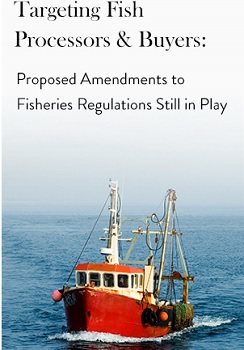
Proposed Fisheries Regulation Amendments Target Fish Processors & Buyers
The Fall 2019 re-election of the Liberal government means the proposed amendments to federal fisheries regulations remain a concern for industry participants.,, However, the government has, to date, not implemented the amendments. The proposed amendments target arrangements that transfer license rights and privileges from license holders to third parties. In the Statement, the Minister notes the perceived narrowness of the definition of “Controlling Agreement”,, McInnes Cooper has prepared this document for information only,, >click to read< 12:27
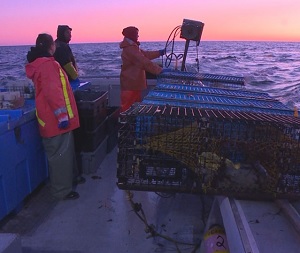
Two parts: 20 years ago the Supreme Court ruled on Mi’kmaq fishing rights, so what has changed?
Early on a warm morning in mid-August, Marilyn-Leigh Francis eyes the Coast Guard boat at the wharf in Yarmouth, Nova Scotia. Word around the wharf is that the DFO officers will be hauling up any lobster traps that aren’t tagged for the Mi’kmaw food fishery season that’s underway. For the last four years, Francis has harvested lobster, outside of the rules set by the DFO. No licence. No tags. She writes her name and Treaty 1752 on her buoys. Francis walks up to one of the DFO officers, introduces herself, and asks, “I was just wondering if you guys were seizing gear today?” The officer says he doesn’t know. But for the rest of summer and into the early fall, the DFO was busy seizing traps. 2 Videos, click to read and watch, >Part 1<, and >Part 2< 12:07

Former fish-plant owners lose lawsuit, Daley Brothers’ plant was burned down in a riot by fishermen
On May 2, 2003, arson destroyed Les Fruits de Mer Shippagan Ltée, along with some traps for snow crab fishing, a warehouse, and a crab processing plant. Three Department of Fisheries and Oceans Canada boats, on loan to Elsipogtog First Nation, as well as another boat, also burned up that day.,, Hundreds of angry fishermen from the Acadian Peninsula were involved in the riots, which began as a protest against the federal government’s move to reduce their crab quotas to recognize the First Nations’ right to live off fishing., >click to read< 07:56
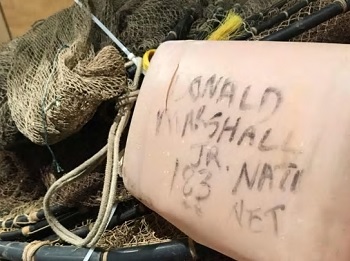
A potent symbol of First Nations rights sat for years in DFO storage, but now it’s home
Jeff Ward was in the middle of a meeting last month in Truro, N.S., when he received a text that made him jump out of his chair.,, Sent to him was a photo of Donald Marshall Jr.’s eel nets, the same ones seized more than two decades ago when the Mi’kmaw man was charged with fisheries offences, a case that would reshape First Nations fisheries in Atlantic Canada. >click to read< 19:21
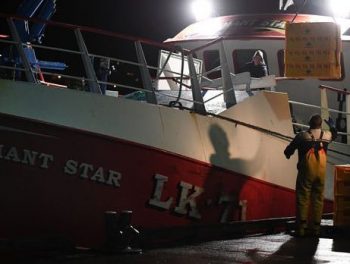
UK fishermen furious at quota madness demand hard Brexit: ‘France don’t give away wine!’
Simon Collins, executive officer of the Shetland Fishermen’s Association, said those he represents are “not impressed” by the Government’s handling of Brexit and any further delay to the UK’s exit from the bloc would not be welcomed on the islands. Mr Collins said Shetlanders are sick and tired of watching foreign boats sail into their waters and leave loaded with fish due to “unfair quotas” set by European officials. “The UK sits in the most productive seas in the EU but we don’t reap the benefits. >click to read< 11:34
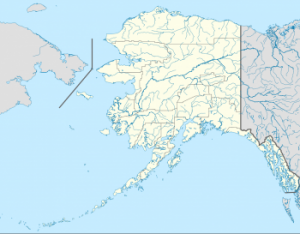
Boom or bust in Adak? Politics will decide
Adak is 1,200 miles west of Anchorage in the Aleutian Islands in the center of some of Alaska’s last “derby style” fisheries. Now, a great political struggle between some large Seattle-based corporate fishing companies and this Aleut community will determine whether Adak and it’s value-added approach to seafood development survives or if these valuable Alaska fisheries resources are simply added to the portfolios of the consolidated fishing companies. These large fishing companies already have exclusive Bering Sea and Aleutian Islands fishing privileges with an aggregate value in excess of $2 billion. In contrast, if Adak and Alaska lose this struggle, the community is not likely to survive. >click to read< 18:58
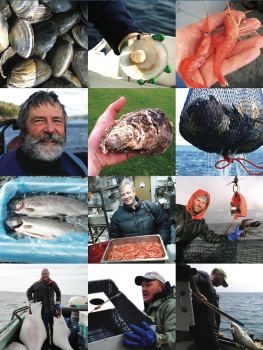
The Global Ocean Grab – Fishing Rights: We can still help save our BC fishing communities!
The sea is an open space that, beyond coastal waters, does not belong to any particular nation or group. People have been harvesting food directly from the sea since time immemorial and the oceans are a resource that belongs to all humanity. Unfortunately, in the age of globalization, the management of this shared heritage of limited resources is based on legal frameworks that undermine small-scale fishers and community management systems while reinforcing the disproportionate power of corporations and other private actors. One of these “legal” mechanisms involves reallocating access to fishing rights and quotas to increase economic efficiency, but this model is very weak in regards to conservation and ensuring equity and social justice. >click to read< 10:42

Our coastal communities are drowning, largely thanks to tradable quotas and licences.
British Columbia’s coastal communities, long dependent on fishing for their livelihoods, are in serious trouble: population down, youth retention down, incomes down, investment down, infrastructure down, health and well-being down. It’s now almost impossible for young people to enter the fishery because of the high cost of purchasing or leasing the Individual Transferable Quotas (ITQs) attached to most fishing licences. ITQs are permits to catch a certain quantity of fish, and can be freely traded or leased. Coastal communities that used to have dozens of fishermen now may have a handful at best. The boatbuilding, repair, and gear supply businesses are likewise disappearing. How did this happen to our once prosperous coast? East Coast, best coast?>click to read<12:32
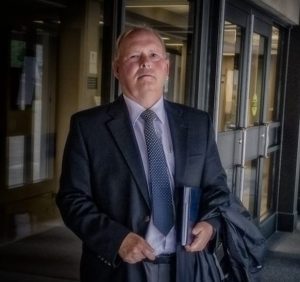
Defining a Moderate Livelihood: Part 2
Bruce Wildsmith wonders what the Marshall decision really meant to the Department of Fisheries and Ocean when it was handed down by the Supreme Court of Canada in Sept. 1999. “It seemed like it wasn’t fully accepted on the face of it; on the face of it, Mi’kmaw had the right to go fish, period,” said Wildsmith, Marshall’s former lawyer and legal advisor for the Assembly of Nova Scotia Mi’kmaq Chiefs . “But from the DFO standpoint, ‘No, we have the right to regulate… >click to read<08:02
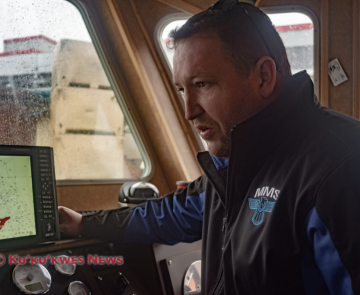
Defining a ‘Moderate Livelihood’: Part 1
This news story is the first in a two-part series examining the issue of defining ‘moderate livelihood’ as the 20th anniversary of the 1999 Supreme Court of Canada ruling in the Donald Marshall, Jr. fishing rights case approaches in Sept. 2019. The commercial fishery saved John Paul’s life in a lot of ways. The Mi’kmaw captain of a vessel from Membertou First Nation, N.S., said the work gave him hope. “Getting big cheques and feeling good,” the 41-year-old fisherman said. “There was a lot of poverty in Membertou when I was a kid, too. It wasn’t like what it is today, that’s for sure,” he added. >click to read< 11:57
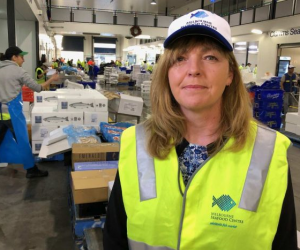
Australia: Fishing group warns of industry pain under Labor’s plan to reinstate marine parks
Ahead of the federal election, Seafood Industry Australia (SIA) has called upon a newly-elected Federal Government to give the fishing industry better security of access and fishing rights. SIA CEO Jane Lovell said a pledge from Labor to reinstate its original 2012 Marine Park Network in full was concerning and would push fishermen out of the industry. Under Labor’s plan Australia would have had the world’s largest network of marine parks which covered offshore waters surrounding every state and territory. “The very fact that this is back on the agenda again removes confidence, increases uncertainty, and this is one of the things that has been found by to be the key driver of the mental health problems in our industry is this constant lack of certainty about the environment they work in,” Ms Lovell said. >click to read<12:03
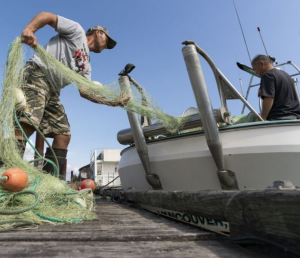
Sweeping reforms to licences, quotas, and equal footing, Standing Committee urges massive overhaul
The committee is recommending sweeping changes to the way commercial fishing licences and quota are owned in B.C. to address concerns of monopolization — including quota ownership by foreign investors who might never have set foot on a fishing boat or in Canada — that has turned commercial fishing in B.C. into “a modern day feudal system.” While commercial fishermen in B.C. applaud the committee’s recommendations, it may not sit well with corporate owners such as Jimmy Pattison’s Canadian Fishing Company, which owns a significant amount of fish quota in B.C. >click to read<12:55
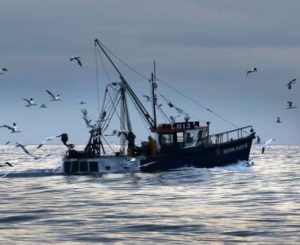
Brian Wilson: The scales must fall from our eyes
The Scottish fishing industry is in the hands of a wealthy few – but will Brexit, whatever form it takes, change anything, asks Brian Wilson Let’s be honest – the vast majority know little about the fishing industry while evincing general sympathy towards those who go to sea in order to put food upon our tables. When fishermen protest about the Common Fisheries Policy they tend to benefit from that empathy because it is easier to concur that “Brussels is to blame” than look for villains closer to home. >click to read<16:03
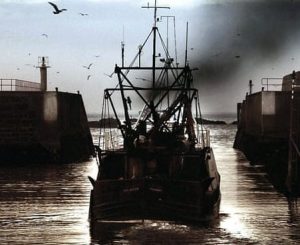
Fisheries bill: Changes would allow small vessels to spend more days at sea and land more catch
Fishing rights should be redrawn to give a higher quota to smaller vessels after Brexit, the Labour party is to propose in an amendment to the government’s fisheries bill. The changes would allow small boats to spend more days at sea and land more catch than they do at present, though catches would still be subject to negotiation with the EU on common fishing grounds. Under current allocations, two-thirds of the UK’s quota of fish under the EU’s common fisheries policy is controlled by three major multinational companies. >click to read<11:27
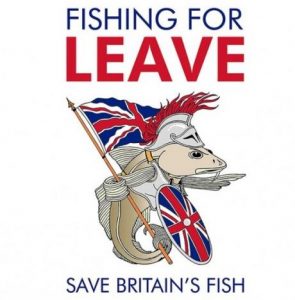
Answering The Question: What’s Fishing For Leave’s Position On Fishing Entitlement?
Fishing For Leave (FFL) are adamant that all repatriated quota is held as a national resource and is divided out to all fishermen in a community. Under the principle of one ton to one boat. If someone doesn’t use their slice it goes back in the pot to be divided again. That is what we’ve represented to the highest levels of government repeatedly and has had some acknowledgement in the white paper. This is in spite of the Scottish Fishermen’s Federation (SFF) insisting all repatriated resources are distributed through the current Fixed Quota Allocation (FQA) system which has facilitated and driven consolidation as the EU CFP quota system failed. >click to read<10:38
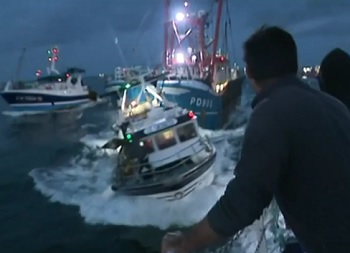
The Scallop War: Food for Thought
Music may be the food of love, but the quest for food has often been the cause of friction and political insecurity. That friction has been evident throughout history. Ancient Rome was troubled by the increase in the price of bread. In the 15th century, 1482-84, the Salt War took place among papal forces, their Venetian allies, and the Duke of Tuscany over the salt that had been reserved to Venice, the only port allowed to trade in salt. The famine in Ireland in the 1840s still has political overtones in British-Irish relations. The 900-day Nazi blockage of supplies to Leningrad, September 1941 to January 1944, caused the deaths of 1.5 million Russian soldiers and civilians and the evacuation of another 1.4 million. The Cod War, really a number of interstate disputes in 1950, 1958, and 1972 between Britain and Iceland over fishing rights in the North Atlantic,,, Now we have an outbreak of a new food war: a Scallop War between Britain and France. >click to read<12:55
Nova Scotia Mi’kmaq vie for licence in lucrative Arctic surf clam fishery
 Thirteen Nova Scotia Mi’kmaq bands have announced they are partnering with Clearwater Seafoods to seek a licence in the lucrative Arctic surf clam fishery, following a recent call by Ottawa for new entrants in a sector currently fished by Clearwater alone. The announcement of the “operational partnership” was made Thursday by Chief Terrance Paul, co-chair of the Assembly of Nova Scotia Mi’kmaq Chiefs. click here to read the story 13:39
Thirteen Nova Scotia Mi’kmaq bands have announced they are partnering with Clearwater Seafoods to seek a licence in the lucrative Arctic surf clam fishery, following a recent call by Ottawa for new entrants in a sector currently fished by Clearwater alone. The announcement of the “operational partnership” was made Thursday by Chief Terrance Paul, co-chair of the Assembly of Nova Scotia Mi’kmaq Chiefs. click here to read the story 13:39
Atlantic and Quebec Indigenous Groups and Ocean Choice International Partner in Bid for Arctic Surf Clam Quota – About the Partners – click here to read the OCI press release
Fiona MacInnes: Why it’s time to wake up, smell the fish, and really take back control
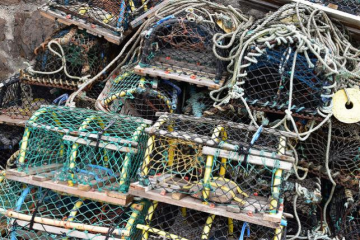 Fiona MacInnes looks at Scotland’s fishing industry and argues that, post-Brexit, the industry is either heading for total corporate domination that will exhaust our resources and impoverish fisherman, or a new collective model where fish are used for the good of Scotland as a whole.,, If the last time you saw a fishing boat was on a Captain Birdseye ad then fish is of more importance to you than just about anything else. It may be the last national asset that you can claim some ownership of. Count up the natural assets that you have lost, and realise why fish is the most important economic and political football of the day. It is the new oil. click here to read the story 10:02
Fiona MacInnes looks at Scotland’s fishing industry and argues that, post-Brexit, the industry is either heading for total corporate domination that will exhaust our resources and impoverish fisherman, or a new collective model where fish are used for the good of Scotland as a whole.,, If the last time you saw a fishing boat was on a Captain Birdseye ad then fish is of more importance to you than just about anything else. It may be the last national asset that you can claim some ownership of. Count up the natural assets that you have lost, and realise why fish is the most important economic and political football of the day. It is the new oil. click here to read the story 10:02
Fishing Rights: Small Scale Fishermen walkout of meeting with ministry over rock lobster suspension
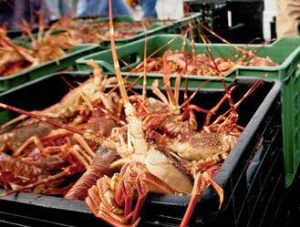 Small-scale and near-shore fishers walked out of a meeting in Cape Town with the deputy director-general for Fisheries Siphokazi Ndudane yesterday, saying her explanations relating to the suspension of the West Coast rock lobster fishing rights allocation were not sufficient. Earlier, angry fishers blocked the entrance to the Department of Agriculture, Forestry and Fisheries offices on the Foreshore again, protesting the outcome of the fishing rights allocation process and blocking entry into the offices. “We are asking for (Ndudane) and the minister to postpone the proposed reductions (of fishing allocations) on the rock lobster and stop the offshore allocations of commercial companies. click here to read the story 20:30
Small-scale and near-shore fishers walked out of a meeting in Cape Town with the deputy director-general for Fisheries Siphokazi Ndudane yesterday, saying her explanations relating to the suspension of the West Coast rock lobster fishing rights allocation were not sufficient. Earlier, angry fishers blocked the entrance to the Department of Agriculture, Forestry and Fisheries offices on the Foreshore again, protesting the outcome of the fishing rights allocation process and blocking entry into the offices. “We are asking for (Ndudane) and the minister to postpone the proposed reductions (of fishing allocations) on the rock lobster and stop the offshore allocations of commercial companies. click here to read the story 20:30

South Africa – Disgruntled small scale fishermen, ‘Suspend lobster fishing rights allocation process immediately’
Police were called to maintain order when a group of disgruntled fishers stormed the Department of Agriculture, Forestry and Fisheries offices on the Foreshore yesterday. They were demanding the immediate suspension of the West Coast rock Llobster fishing rights allocation process. They want the West Coast rock lobster offshore allocations shifted from big companies to near shore and small scale fishers. click here to watch video, read the story 11:19
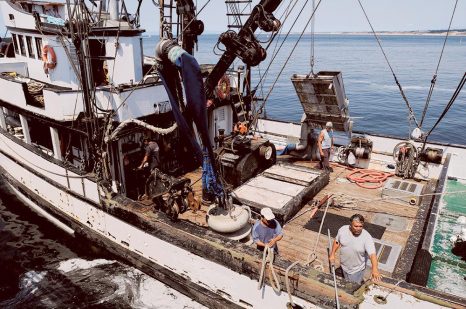
California’s confidential fishing rights leave millions of dollars in mystery.
Over years of writing about and working in the fishing industry, I (Nick Rahaim) have often found it difficult to substantiate many things told to me – often as gospel – on fishing boats and in salty bars. Many of those stories aren’t of much consequence – that most fishermen found dead in the water have their fly unzipped, or that whistling in the wheelhouse will blow up a storm. But another story represented enough potential injustice that I had to learn more. A year ago, while working as a fisherman and freelance journalist in Alaska, I heard California seafood companies that buy and sell product were buying up squid permits – permanent fishing rights, limited in number, bought and sold on a market – from independent fishermen. The implication: They were trying to corner the market, creating squid cartels where they could control prices paid to fishermen, causing ripples down the supply chain to the consumer. (More on the system of fishing rights later.) Read the story here 10:45
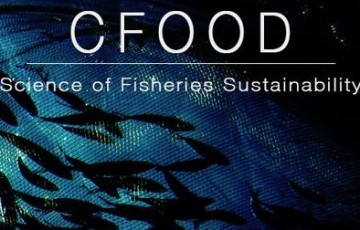
Catch Shares versus Sharing Catch – Comment by Stephen J. Hall, David J. Mills & Neil L. Andrew
Lee van der Voo considers catch shares in the US to be, “one of the coolest vehicles environmental policy has seen in decades,” because they reduce fishing effort, diminish incentives to fish in dangerous weather, can boost the value of seafood, and most importantly, were designed to keep fishing rights with the fishermen and their communities. However this last attribute has not worked for most catch share programs,,, Van der Voo fears that over the long term catch shares will increase costs, fishermen will earn less because of higher rental payments owed to, “people in suits,” that own the fishing rights. Consumers would then pay more in this scenario while a handful of investors would become rich. Read the article here 08:22
Lobster trap seizure sparks dispute with Passamaquoddy Tribe
 A dispute over tribal fishing rights in the Canadian waters of Passamaquoddy Bay has surfaced, following the recent seizure by the Canadian government of lobster traps being fished by members of the . The issue highlights tribal members’ lack of rights in Canada, since the tribe is not recognized by the federal government. Kani Malsom, a Passamaquoddy fisherman from Sipayik, says about 175 of his traps were seized this fall. “It’s our inherent right to fish on that side of the border. We never had to have a license,” Read the rest here 15:21
A dispute over tribal fishing rights in the Canadian waters of Passamaquoddy Bay has surfaced, following the recent seizure by the Canadian government of lobster traps being fished by members of the . The issue highlights tribal members’ lack of rights in Canada, since the tribe is not recognized by the federal government. Kani Malsom, a Passamaquoddy fisherman from Sipayik, says about 175 of his traps were seized this fall. “It’s our inherent right to fish on that side of the border. We never had to have a license,” Read the rest here 15:21
Catch Shares: Investment Firms are taking over the Fishing Rights

 What does it take to buy a share of the American ocean? Policymakers assured the nation that fishing rights would never migrate out of U.S. control through catch shares or end up as properties of investment firms. Environmental groups have similarly touted catch shares as a tool for communities and fishermen and overlooked the role investors can and do play. As the Snow’s deal now makes clear, those pacifications are baloney. Read the rest here 22:29
What does it take to buy a share of the American ocean? Policymakers assured the nation that fishing rights would never migrate out of U.S. control through catch shares or end up as properties of investment firms. Environmental groups have similarly touted catch shares as a tool for communities and fishermen and overlooked the role investors can and do play. As the Snow’s deal now makes clear, those pacifications are baloney. Read the rest here 22:29







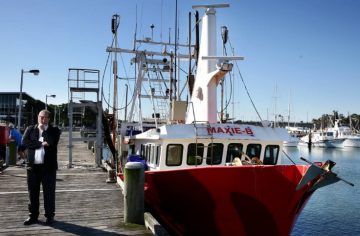 The head of the Newcastle Fisherman’s Cooperative says he doesn’t know how many members will leave as a result of the Baird government’s commercial fishing reforms. Robert Gauta has told a NSW parliamentary inquiry that the reforms had led to “uncertainty” over how many of its members “will stay and how many will go”. Set to come into play from the middle of 2017, the government’s reforms to the $90 million commercial fishing industry link fishing rights with catch levels. The government argues the reform will make the industry sustainable, but the introduction of minimum shareholdings will also mean commercial fishers may need to increase their holdings to maintain the same catch level. “The cooperative makes money when the fishers catch fish; it is that simple … fewer fisherman would mean fewer fish.”
The head of the Newcastle Fisherman’s Cooperative says he doesn’t know how many members will leave as a result of the Baird government’s commercial fishing reforms. Robert Gauta has told a NSW parliamentary inquiry that the reforms had led to “uncertainty” over how many of its members “will stay and how many will go”. Set to come into play from the middle of 2017, the government’s reforms to the $90 million commercial fishing industry link fishing rights with catch levels. The government argues the reform will make the industry sustainable, but the introduction of minimum shareholdings will also mean commercial fishers may need to increase their holdings to maintain the same catch level. “The cooperative makes money when the fishers catch fish; it is that simple … fewer fisherman would mean fewer fish.”  Over the last two decades, there has been a silent, neoliberal revolution in our oceans. “We are, quite seriously, on the brink.” Jerry Percy, Executive Director of Low Impact Fishers of Europe, a group representing fishers around the continent, is worried about the future for the UK’s small-scale fleet. How did this situation come about? The answer lies in economics. Iceland was one of the first countries to implement this market-based policy in the Eighties. “Many fishermen were dispossessed. It even led to a case before the UN Human Rights Committee.
Over the last two decades, there has been a silent, neoliberal revolution in our oceans. “We are, quite seriously, on the brink.” Jerry Percy, Executive Director of Low Impact Fishers of Europe, a group representing fishers around the continent, is worried about the future for the UK’s small-scale fleet. How did this situation come about? The answer lies in economics. Iceland was one of the first countries to implement this market-based policy in the Eighties. “Many fishermen were dispossessed. It even led to a case before the UN Human Rights Committee. 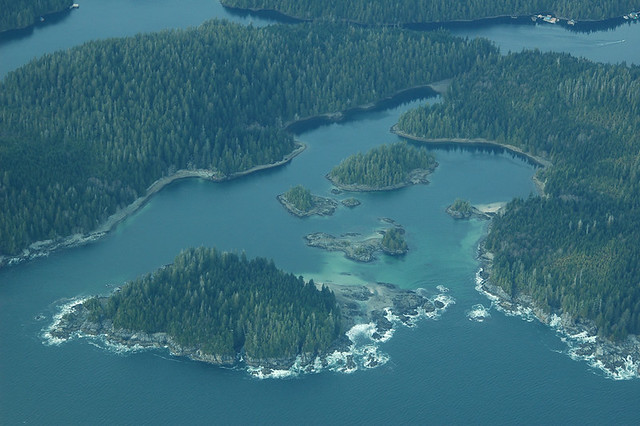 A confrontation between the Tseshaht First Nation and commercial fishing boats was avoided Sunday when a federal department postponed a herring fishery in Barkley Sound. A herring roe fishery was scheduled to open at sunrise by the Island’s West Coast area, but a last-minute announcement from Fisheries and Oceans Canada held off this activity, citing that stocks were not ready for harvesting. Tristan Nano photo
A confrontation between the Tseshaht First Nation and commercial fishing boats was avoided Sunday when a federal department postponed a herring fishery in Barkley Sound. A herring roe fishery was scheduled to open at sunrise by the Island’s West Coast area, but a last-minute announcement from Fisheries and Oceans Canada held off this activity, citing that stocks were not ready for harvesting. Tristan Nano photo  The lack of young Alaskans entering commercial fisheries is compounded by another troubling trend, the rise in nonresident permit ownership in some fisheries. Together these concerning trends threaten the long-term viability of our coastal communities and state. As we work to better understand the problem, we must also work toward effective solutions. Our aging fleet means many of the rights to Alaska fisheries will change hands in the next decade. What will this transfer mean for the well-being of coastal Alaska and those who call it home?
The lack of young Alaskans entering commercial fisheries is compounded by another troubling trend, the rise in nonresident permit ownership in some fisheries. Together these concerning trends threaten the long-term viability of our coastal communities and state. As we work to better understand the problem, we must also work toward effective solutions. Our aging fleet means many of the rights to Alaska fisheries will change hands in the next decade. What will this transfer mean for the well-being of coastal Alaska and those who call it home? 


























